#no rickrolls here
Text
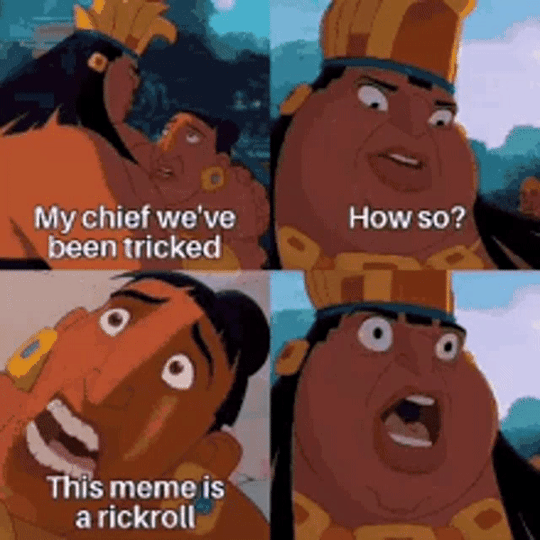
#april fools#april tomfoolery#definitely not a rickroll#no rickrolls here#shitpost#shitposting#epilespy warning#flashing image warning#if those are wrong btw pls lmk#memesdaily#funny#memes#image alt text#alt text
24 notes
·
View notes
Text
I didn’t know how to make polls last for a week last time. Let’s see how the percentages line up on a grander scale and how many more people want to destroy me! :D
#rick roll#rickroll#rickroll poll#here we go again#I enjoyed this way too much last time#>:D#this is as close as I get to trolling#Behold my lowgrade deviousness at work!
3K notes
·
View notes
Text
he's never gonna give you up never gonna let you down never gonna let you down never gonna run around and desert you never gonna make you cry never gonna say goodbye never gonna tell a lie and hurt you~
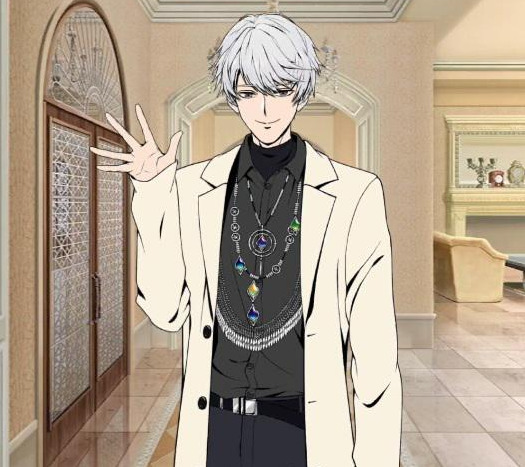
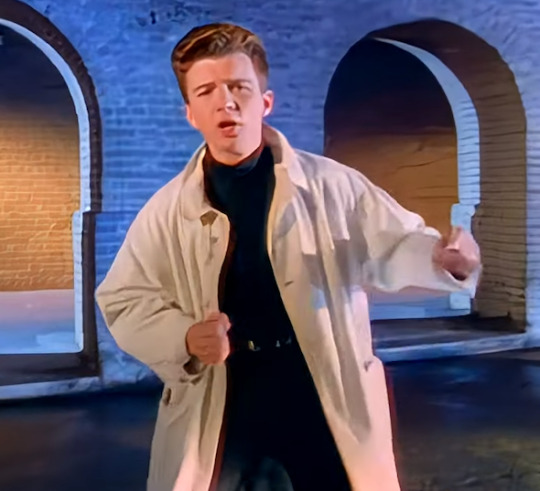
#obey me#omswd#obey me shall we date#obey me swd#obey me solomon#good morning everyone here's your reminder that these two share an outfit lmao#edit: you're all cursing me for rickrolling you but know that every day i get rickrolled myself however many times you all rb & i am dying#this is my 13th reason why /j
6K notes
·
View notes
Note
Wait, girl in red? Are you female??
no i’m a ✨mystery✨
….but actually yes lmaooo
#i’m still a ✨mystery✨!!!#and this blog is like in my head a separate entity of myself as like a person?#lmao but yes#also why’d you phrase is like that anon?? lmao#anyways#alexa play girl in red#ask#the hellsite answers#anonymous#hellsite hall of fame curator’s bullshit#also#I woke up to this ask and was like ‘nope can’t answer bc mystery✨’#but also then I remembered like 90% of the people on here think i’m like an 80 year old man😭#which is absolutely hilarious and adds to the lore#but I got called ‘LITTLE MAN’ in an ask#and like 1. that’s absolutely hilarious#2. even if I was a little man why would you call someone that in an ask bc it so hilariously condescending lmao#and so yeah lmao#oh also i’ve literally posted my spotify on here (which everyone should check out and totally not get rickrolled in the process :)#but I put actual playlists at the bottom and those are. like. so wlw#so anyways yeah#alexa play girl in red even louder
304 notes
·
View notes
Text
many thoughts about epic: the musical...
i am once again in the middle of essay writing but plautus is boring and my friend introduced me to this album so u already know I binged the entire thing
(quick warning for spoilers of homer's odyssey? if that's necessary?? man idk whatever)
first thoughts naturally concerned odysseus. i have hated this man with a burning passion ever since I started studying classics - i think he is irredeemably selfish, a liar masquerading as a 'resourceful hero,' and basically just a twat all around. that being said, i respect that epic is not an exact replica. in fact, i like that about it!
readings of odysseus as a loving husband and father, and a man who cares deeply for his crew and fellow warriors is one i would love to see reflected in the source text (though i admit i have only read two different translations so far, so this is subject to change depending on translators choice!), if only because it would be so so refreshing. and epic does that extremely well! i find epic's odysseus to be far more likeable, insofar as he is fueled not by greed for glory (kleos for the nerds out there) but rather the desire to return to his wife and son. (I personally would argue that, while homer's odysseus is indeed fueled by a desire for homecoming (nostos), it is not for the sake of penelope and telemachus, but rather concern over the security of his status and position within the household (oikos))
i also very much enjoy that the love he holds for his family is not an inherently positive trait. in the aeneid, and often in myth, it is achilles' son, neoptolemus/pyrrhus who kills the son of hector and andromache, astyanax by throwing him from the walls of troy - less common, it is odysseus (which i did not know until i googled it just now oops). homer's odysseus does not reject the gods. he is beloved by some, hated by others - he receives their boons and curses as they come. he revels in the attention of the divine, no matter positive or negative, for it is proof of his kleos. epic's odysseus is so much more... human. he doesn't vie for glory that reaches the skies. if anything, he rues it. in the horse and the infant he supplicates himself to (who i assume is) zeus - which is such a loaded act i am genuinely struggling to think of how to articulate it, but boy am I gonna try my darndest.
the act of supplication and guest-friendship (xenia) is a very key theme within the odyssey, and to a point in the iliad also - essentially, if a traveller were to arrive at your doorstep, you were obliged to let them in and provide food, drink, and lodgings to that traveller, no questions asked. in return (because reciprocity is VERY important in homer especially), the guest would provide entertainment, tales of their travels, etc, and would be respectful of their host. the patron of these travellers was zeus. any violation of these terms, on part of the guest or host, would be met with divine scorn. for odysseus to supplicate himself to zeus is therefore meta as hell, but I would instead bring attention to the echoing lyric "hes bringing you down to your knees." 'he,' assumedly, is astyanax. his father, hector, is dead; as is his grandfather, priam, and all of priam's other sons. at this point, one could assume that it is astyanax who is ruling troy, who is now the host of the city that odysseus, a traveller from another land, has entered and ransacked. zeus' 'prophecy' of astyanax growing old and seeking revenge (reciprocity! homeric greece had a 'revenge culture' - essentially 'an eye for an eye' as well as 'you scratch my back, I'll scratch yours,' though not always so clear-cut), therefore, would be odysseus' punishment for violating the terms of xenia.
supplication, however, is not limited to guest-friendship alone. for example, in odyssey 22, when odysseus slaughters the suitors occupying his home (is that spoilers?), their priest leodes supplicates himself at odysseus' feet, begging to be spared. odysseus takes his head from his neck in an instant. odysseus' kneeling before astyanax, therefore, is no simple act between a guest and his host - perhaps he is begging the infant for mercy, for forgiveness, or perhaps he is positioning himself for punishment; in killing astyanax, odysseus accepts his own death. perhaps this means his fate (which, in case of homeric epic, refers to the time and manner of one's death), or perhaps it is a part of him that has died. in just a man, odysseus asks "when does a man become a monster?" his killing astyanax prevents the boy from ever becoming a man, and spares him from a life fueled only by revenge and the need to regain his glorious birthright, and it turns him into a monster. just as he says he would, he trades in the world where he is 'just a man' for a world where he is a cruel beast, all for sake of his family.
(quick detour but i really like how odysseus' focus is primarily on penelope rather than telemachus. [insert deadbeat dad joke here], but in reality, he doesn't even know the boy. penelope he chose to marry and fall in love with - it's no question that he loves telemachus, but after ten years, it is only natural that he would miss his beautiful, tricky wife with more fervour than the child he never had the chance to love. it shows he is imperfect, even illogical - the son is the father's entire legacy. just as odysseus is 'son of laertes', so will telemachus be 'son of odysseus', the protector of his immortal heroic legacy. yet it is penelope whom odysseus yearns for.)
(another detour but "i'm just a man" is such a juicy lyric, because the entire message of homer's odyssey is that odysseus is not any man - he is a man that the muses deem worthy to inspire great poets to compose epic poems that persist through thousands of years and a million different voices - a hero. but epic's odysseus is not that hero. he is a man, trying to go home, craving comfort and the warmth of the hearth. these 'flaws' humanise him more than homer's odysseus could ever imagine.)
skipping over to polyphemus, odysseus violates xenia once again by killing polyphemus' sheep, albeit unwittingly. homer makes this violation very obvious - odysseus and crew eat polyphemus' cheese and wine while polyphemus tends to his sheep, knowing that the cave is obviously inhabited, and they even wait for polyphemus to return to ask for more. it is worth noting as well that, at this point, odysseus and crew are still jubilant about their victory, and unlike in epic, these 'detours' are purposeful, specifically so that odysseus can scope out the islands for anything of interest he can snatch and add to his spoils of war, adding to his kleos by means of physical wealth (timē) - which makes odysseus' offer of treasure to appease polyphemus all the more baffling in epic. this odysseus is a leader who prioritises the lives of his men over his own kleos, which makes the final lines - "you shall be the final man to die" // "what?" // "watch out!" - all the more heartbreaking. he wants to protect his men, so that they too may return to their families back on ithaca; the prospect of watching them die before his eyes after he already witnessed so many lose their lives in battle must be so utterly terrifying.
polyphemus is so excellently creepy as well! i loved him in the odyssey - this was where I really started to dislike odysseus, actually. he's a cyclops, obviously inhuman, yet he rears sheep and makes cheese and wine and weaves wicker baskets to keep them in, trying to play at humanity. i really did sympathise with him from the first time I read it. epic's polyphemus is similar, so very calm in his anger yet ruthless all the same, and demonstrates great restraint in comparison to his counterpart in the odyssey, who gets filthy drunk after mashing six men dead and allows odysseus+co. to fashion a stake with which to blind him. much of the violence against polyphemus, as well as the violation of xenia in homer's odyssey is 'excused' by the fact that polyphemus is a 'barbarian', to whom concepts of civilised people do not belong.
(very quick detour but polyphemus' first admonishment of odysseus - "you killed my sheep" up to "take from you like you took from me" - makes such heartbreaking parallels to astyanax's murder and the sack of troy. it almost provides a visualisation of the guilt that odysseus must still be battling. i would have loved to have been in his brain when he heard polyphemus say that.)
the mercy odysseus shows polyphemus is particularly interesting - homer's odysseus leaves him alive and tells him his name purely so that his name will spread and his kleos will grow. but epic's odysseus, despite his conviction to kill in survive and to avenge is fallen comrades in remember them, spares him. in part, this is to assure them an escape, so that the cyclops' giant body does not block their exit - but athena's interruption makes clear that this is not all. she criticises him, remarks "he is still a threat until he's dead." no doubt this calls back to zeus' warnings about astyanax, hence his refusal (or inability?) to commit to slaughter. for a homeric greek hero to allow a foe to live on after his allies had been slaughtered is a grave failure of reciprocity, casting shame on both the hero and their enemy. homer's odysseus escapes this with his reputation intact, since as a result polyphemus curses him to face poseidon's wrath - as I mentioned, for a hero, even negative attention from the gods is a good thing as it proves that their reputation/glory is known all over, even in olympus. but, as we have established, epic's odysseus cares not for kleos. the decision to tell polyphemus his name is entirely impulsive and irrational, grieving his comrades, hence athena's outrage.
the relationship between athena and odysseus is founded entirely on the principles they share, described in warrior of the mind (if anyone can lmk whereabouts this song fits in the timeline I will be so grateful, I'm stupid unfortunately :/). they value wisdom, reason, and rationality over brute strength and bloodlust. epic's athena becomes odysseus' patron goddess with the goal to "make a greater tomorrow" and "change the world" - aspirations that are entirely foreign to any homeric god. gods in homer do not care about the wellbeing of humans unless they are directly related to them, and they certainly don't care about the wellness of humanity as a whole. humans are toys and tools of the gods. the amount that athena cares for odysseus, even in the odyssey, is unusual, demonstrative of how much she cares for him, yet epic makes their comradery more obvious, even going as far as to (tentatively) call them friends. my goodbye frames athena's anger as disappointment at an experiment failed - calling back to warrior of the mind, where she claims to have "designed" him - but odysseus' replies to her makes clear that it is far more personal. perhaps, to her, odysseus acting so irrationally is even a betrayal; odysseus is abandoning the principles of reason they both once held and thus is forsaking all that they once shared and that she, as the goddess of wisdom, stands for.
ive always considered athena to be a very interesting goddess. she is a patron of both war, which in homer is only carried out by men, and weaving, the traditional work of women within the household - her very nature is a contradiction of masculine and feminine. although it is ares who is considered the 'black sheep' of the olympians for his brutality in war, epic's portrayal of athena through odysseus' lens paints her as lonely and ostracised - "since you claim you're so much wiser // why's your life spent all alone? // you're alone." It is clear that odysseus here does not view her as his patron at all, rather as a friend - and to that she takes offence, because she is a goddess, eternal and all-powerful. she does not need friendship or comradery; those are mortal concerns alone. personally, I see epic's athena as incredibly insecure. she cuts odysseus off because she cannot bare that a mortal has been able to read her so clearly, to see all the ugly parts of herself that she keeps hidden to retain the facade of the perfect goddess. she knows the paradox within herself - warrior and woman, immortal and alone - and rues that odysseus was able to see it as well. the cruellest part, the most ironic, is that his being able to figure out the true, imperfect nature of a god shows that he has not abandoned the path of the warrior of the mind. in fact, his wisdom extends beyond mortality into the realm of the divine. but athena is blinded by her anger and insecurity, and she says her goodbyes. she disappears from there, only to appear again to try to warn odysseus of his crew opening the bag of winds given to him by aeolus in keep your friends close, once again demonstrating her care for him, despite her anger.
the amount that odysseus cares for his crew is demonstrated time and again throughout the album, yet in the end, he still slowly loses their trust. aeolus' winds are the first sign. his crew betrays his orders upon the first whisper on the wind that he might be keeping treasure from them. the next sign, in puppeteer, is eurylochus' confession upon arrival to aeaea (circe's island), which odysseus brushes off, much as he brushed off eurylochus' concerns in luck runs out. then, in a matter of moments, 600 men are reduced to forty by the wrath of poseidon - which in itself is a significant change. while odysseus in epic is explicitly blamed for failing to kill polyphemus, homer's odysseus takes no responsibility for the deaths of hundreds of his men. it happens when they arrive at telepylos, which, unbeknownst to them, is home to the laestrygonians, a race of cannibalistic giants. odysseus, apparently sensing something off (who tf does he think he is, spiderman?), allows his entire fleet to enter the bay of telepylos while his ship alone remains outside - and when those ships are attacked and trapped, he alone takes his single ship and escapes, allowing twelve ships of men to be ripped apart and eaten by cannibals. an act which he shows no remorse for.
in my interpretation of homer's odyssey, it is this slowly slipping trust that eventually leads to his men ignoring his warnings and feasting on the cows of helios which leads to the deaths of all his remaining crew, including eurylochus and polites (spoilers? idk). so, once epic: the musical catches up to book 12 of the odyssey you WILL be seeing me again I hope ur excited.
there is definitely more i could say here, especially about the circe saga bcs ohhh my god I love circe and I love this circe especially (a female character with actual motive other than being a victim? homer could never) but unfortunately I'm running out of steam and I do in fact have 3 essays due this month (help) so I will probably return to this later !! hopefully its readable bcs I'm not going back to edit any of this ;)
#joined cort's spotify jam while writing this and got rickrolled#the message here is trust no one#skipped my seminar to do work and did this instead#fuck u plautus and your dumb menaechmi#this took like 4 hrs to write i have issues#epic the musical#epic the ocean saga#epic the circe saga#epic the cyclops saga#epic the troy saga#epic#classics#classical studies#homer's iliad#homer's odyssey#the odyssey#odysseus#penelope#media analysis#literary analysis#longpost#homer
81 notes
·
View notes
Note
Fox: I'ma be silly and just say this because I still know the tongue from my old ventures but.. 🕈︎♏︎🕯︎❒︎♏︎ ■︎□︎ ⬧︎⧫︎❒︎♋︎■︎♑︎♏︎❒︎⬧︎ ⧫︎□︎ ●︎□︎❖︎♏︎ ⍓︎□︎◆︎ 🙵■︎□︎⬥︎ ⧫︎♒︎♏︎ ❒︎◆︎●︎♏︎⬧︎ ♋︎■︎♎︎ ⬧︎□︎ ♎︎□︎ ✋︎📬︎ ✌︎ ♐︎◆︎●︎●︎ ♍︎□︎❍︎❍︎♓︎⧫︎❍︎♏︎■︎⧫︎🕯︎⬧︎ ⬥︎♒︎♋︎⧫︎ ✋︎🕯︎❍︎ ⧫︎♒︎♓︎■︎🙵♓︎■︎♑︎ □︎♐︎ ✡︎□︎◆︎ ⬥︎□︎◆︎●︎♎︎■︎🕯︎⧫︎ ♑︎♏︎⧫︎ ⧫︎♒︎♓︎⬧︎ ♐︎❒︎□︎❍︎ ♋︎■︎⍓︎ □︎⧫︎♒︎♏︎❒︎ ♑︎◆︎⍓︎ ✋︎ 🙰◆︎⬧︎⧫︎ ⬥︎♋︎■︎■︎♋︎ ⧫︎♏︎●︎●︎ ⍓︎□︎◆︎ ♒︎□︎⬥︎ ✋︎🕯︎❍︎ ♐︎♏︎♏︎●︎♓︎■︎♑︎ ☝︎□︎⧫︎⧫︎♋︎ ❍︎♋︎🙵♏︎ ⍓︎□︎◆︎ ◆︎■︎♎︎♏︎❒︎⬧︎⧫︎♋︎■︎♎︎ ☠︎♏︎❖︎♏︎❒︎ ♑︎□︎■︎■︎♋︎ ♑︎♓︎❖︎♏︎ ⍓︎□︎◆︎ ◆︎◻︎ ☠︎♏︎❖︎♏︎❒︎ ♑︎□︎■︎■︎♋︎ ●︎♏︎⧫︎ ⍓︎□︎◆︎ ♎︎□︎⬥︎■︎ ☠︎♏︎❖︎♏︎❒︎ ♑︎□︎■︎■︎♋︎ ❒︎◆︎■︎ ♋︎❒︎□︎◆︎■︎♎︎ ♋︎■︎♎︎ ♎︎♏︎⬧︎♏︎❒︎⧫︎ ⍓︎□︎◆︎ ☠︎♏︎❖︎♏︎❒︎ ♑︎□︎■︎■︎♋︎ ❍︎♋︎🙵♏︎ ⍓︎□︎◆︎ ♍︎❒︎⍓︎ ☠︎♏︎❖︎♏︎❒︎ ♑︎□︎■︎■︎♋︎ ⬧︎♋︎⍓︎ ♑︎□︎□︎♎︎♌︎⍓︎♏︎ ☠︎♏︎❖︎♏︎❒︎ ♑︎□︎■︎■︎♋︎ ⧫︎♏︎●︎●︎ ♋︎ ●︎♓︎♏︎ ♋︎■︎♎︎ ♒︎◆︎❒︎⧫︎ ⍓︎□︎◆︎📬︎ And thats about all i'm gonna say see you later bean -w- *runs*

(Translation in tags for those who do not want to be blasted)
#ooc post#it's a rickroll kjfdkjlfg#been a while since this happened to me but I cannot complain since I unironically like the song kjdfgkfd#so thanks I guess!#tho if you wish to meme on me please send it to my art blog instead bc we are already way off-topic here lkjfdgkjfd#okay back to work or time to sleep bc it is late whoops
42 notes
·
View notes
Text

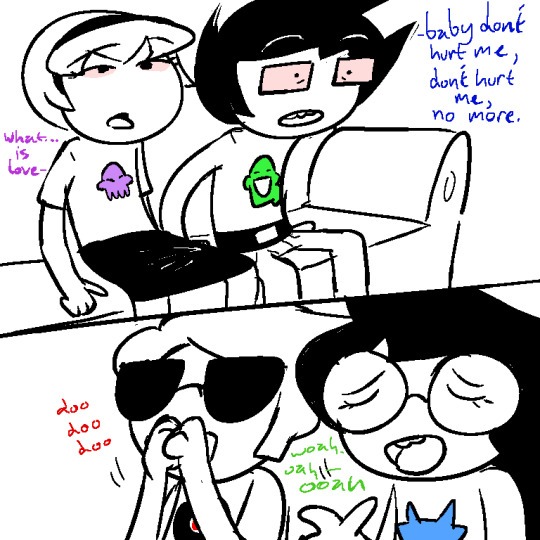
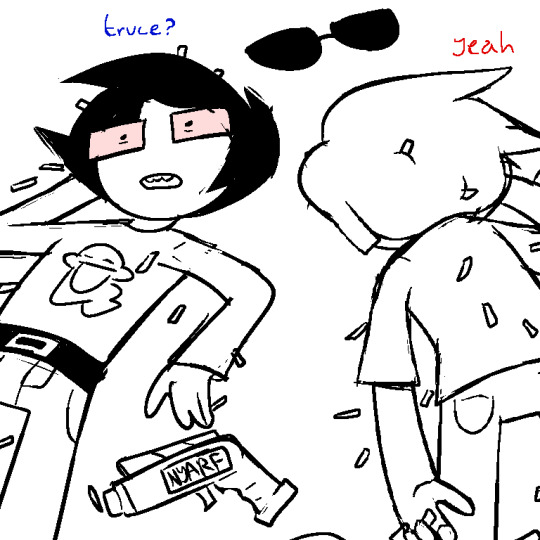

On 4/20, I made the first one (cause hee hee funny weed number day), and then my buddy Beedle requested some other "weedstuck" (as they called it) doodles (the last one was my stupid idea)
It then spiraled into this
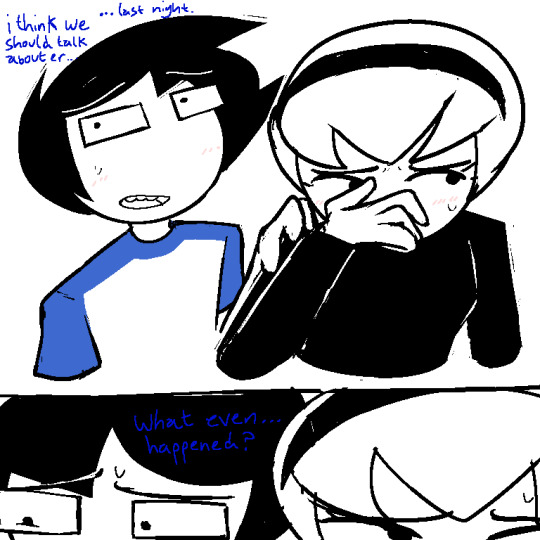
Last night in question:

Dave's hand over the face sends me every time
#im late to the party#BUT#happy 4/20#look at this stupid fuckin thing#LMAOOO#homestuck#homestuck fanart#john egbert#rose lalonde#dave strider#jade harley#shitpost#what is love#baby dont hurt me#dont hurt me#no more#yall should be glad that i didnt go the rickroll route#actually wait#thats a good idea#heheh#anyway#grimdorks#smooch#nerf war#wait no its a nyarf war my bad#doodlings#doodles#most of my drawings that i post here#they dont have skstches#idc if you could tell but its genuinely so freeing to draw without one
11 notes
·
View notes
Text
clocks in matteo jwhj 0175's Goncharov
I know we’re all a bit tired of talking about the clock symbolism in Goncharov, but there’s a fascinating story about it that I want to share.
So This post says that it was considered lost media until 2006, but that’s only in hindsight. The first full screening of the film didn’t take place until 2010, due to Russian mob interference. The Russian mob tried to destroy every print of it because of its critical portrayal of Soviet era government (and likely because of its heavily homoerotic undertones between Sofia/Katya and Andrey/Goncharov (and even Goncharov/Mario, although that is less obviously intentional).
But about the clocks: Christian Marclay’s art piece The Clock (2010) is a 24-hr supercut of clocks in films and television. The work itself functions as a clock, with the timepieces and clockfaces counting the hours, seconds, and minutes in real time. The film was shown at the Boston Museum of Fine Arts, the Tate, The Lincoln Center, etc.
In 2006, while working on the idea for The Clock, he purchased two film cannisters from a garage sale, and used a couple clips from them to create The Clock.
Well, it turned out that he’d somehow come across some rough edits from a couple scenes from the lost Scorsese epic. Goncharov features twice—a shot of the clocktower from the dénouement, and the shot of Andrey’s watch (from the scene where he is waiting for his mark). When The Clock originally debuted, audiences were struck (pun intended) by the powerful imagery and uneasy tone of these two shots in particular. When asked about their source, Marclay shrugged and shared the story of finding them at a garage sale. (finding a full copy and restoring it is another long story that I can’t even get into rn bc it’s so complicated).
So even if we’re tired of talking about that symbolism, it’s literally because of its powerful imagery that we even know it exists.
In fact, Goncharov was still so controversial in Russia that The Clock had to be edited to show there. In 2011, The Clock showed at the Garage Center for Contemporary Art in Moscow. It was mired in controversy, and was re-screened with different clips substituted for the Goncharov appearances. Due to copyright laws, many scenes and clips of The Clock are technically illegal, and Russian interference made Marclay remove those clips entirely, which is the only version that exists now!! I haven't seen the original version bc thats now lost media too!! Anyway. CLOCKS. They're important.
#goncharov#martin scorsese#matteo jwhj 0715#clock symbolism#JUST SO YOU KNOW: the hyperlinks here are real. they are not rickrolls#i reallyl ike the clock and this post is for leo <3#unreality#to clarify: the clock and christian marclay are real. and it actually DID screen in moscow#but everything else is a lie. i'm lying. it's not real#i have literally more posts like this lined up bc im losing my mind.#pers#clocks#clocks in goncharov#gonchmeta#gonchlore
125 notes
·
View notes
Text
HOT ROBOTS IN YOUR AREA
CLICK HERE
#inverse problem.txt#this is a joke this is just for fun#I guess I could’ve put a rickroll here but ah well#anyway this is now a phishing psa I guess#unreality#just in case tagging that
12 notes
·
View notes
Note
Kazumi Mishima shouldn’t be in the Never Gonna Give You Up music video
Kazumi Mishima shouldn't be in the music video for Never Gonna Give You Up by Rick Astley.

#Mishima In Places He Shouldn't Be#Code Red: YOU in Impending Danger#of getting rickrolled#HAHA#Mishima Enrichment Locations#i feel like he's having fun here so#your turn to die#yttd#kazumi mishima#Meme Locations
35 notes
·
View notes
Text
Since a few people have been afraid of getting rickrolled by links I've posted...
DO NOT WORRY.
If I include links in a post or a comment, they are not rickrolls. And they are worksafe. I won't hurt you; I won't lie to you.
I'm just a geek who gets curious about questions and then has to find the answers. I supply the links because I think the sources are interesting (or because someone might not believe me without the links), so I share them.
8 notes
·
View notes
Text
Yknow, I think its kind of impressive how the rickroll meme has developed. Like. Weve advanced past Actual rickrolls now. Ill see a link on a post that I Know is gonna be a rickroll. And then click it, just because. And then it will be a Different random song. I am now more rickrolled by the Absence of Rick Astley than I am by his presence.
#memes#rickroll#i remember Years ago i had a debate with someone on here about whether memes were reaching a critical density of irony#and whether this was gonna lead to meme collapse#i think this is proof i was right#life uh finds a way
39 notes
·
View notes
Note
Characters' opinions if they got rickrolled.
The Physician: Oh, groan... Not funny. Not horrible, but not funny either. A mild annoyance, but she wouldn't get annoyed for real.
Aubrey: How nice of them to send him music, but it isn't to his taste...
Vesa: She would be in on the joke and laugh.
Narciso: Would avoid technology as much as he could, but if it happened, he would think that they simply sent him the wrong link.
Roswhen: Groan and laugh.
Elan: That's quite innocent... He would barely react, just think 'oh, so they got me...'
#fervency ros#had to stop myself from including a rickroll here#simply because I know that there's no way you would fall for it!
9 notes
·
View notes
Text
youtube
(audio warning agaiun) this gave me a headache to edit
#gmod#my stuff#i didnt expect hlvrai voicelines in it it jumpscared me so bad#also i lied my favorite part is barney yelling at the chumtoad#and the barneys being like Ugh noone here is NICE (twice)#also also this crashed my computer 3x#also also also i swear the rickroll was coming from gordon
7 notes
·
View notes
Text
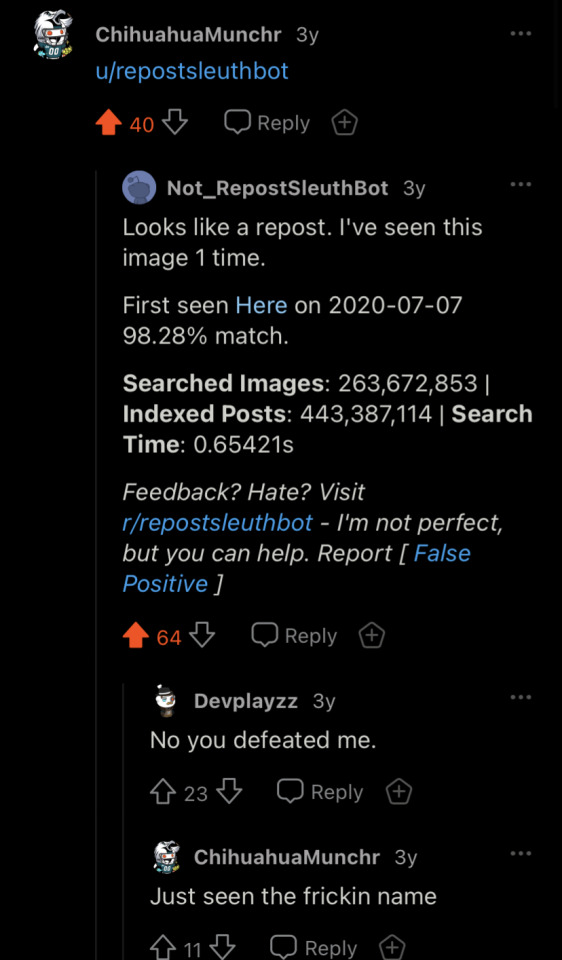

That’s the greatest way to trick someone into clicking on a rickroll that I’ve seen in my entire life
#Emu tries to post#rickroll#check the username again#it’s not sleuthbot#also I was so confused#the here link is broke wha- THATS NOT SLEUTH BOT#I respect you for that
7 notes
·
View notes
Text
Valicer Not-Incorrect Quotes, Christmas Edition
Victor: [knocking on Smiler's door with Alice] Smiler? Are you ready to go?
Smiler: [flings opens the door, sporting a bright yellow Santa hat, sparkly red and green eye makeup, a yellow sweater with purple snowflakes, and black pants featuring embroidered red and green light strings with real flashing lights in them] Hello, my lovelies! I bring the spirit of the season with me!
Alice: ...the spirit of the season is making my eyes bleed.
Smiler: That's an important Christmas tradition, let's go.
--
Victor: [enters Smiler's living room area to find them setting up a bright yellow Christmas tree] ...
Smiler: [looks over] What's up?
Victor: ...you really -- of course you do, why would I assume you'd have a green Christmas tree.
Smiler: Yeah, do I look like Thirteen? Now help me get this thing into the stand, it's being difficult.
--
Smiler: [arriving back at the trio's house post-everyone moving in together] Hey! I'm back!
Alice: [emerging from the kitchen to greet them] Welcome home -- Victor's currently making sure the gingerbread doesn't burn, but he'll be --
Alice: [pause, sniffs the air]
Alice: [knowingly] Ah. Peppermint latte season then?
Smiler: We had a special promotion so I'm probably going to smell like this until Easter, yeah.
--
Smiler: [noodling around on their drum set] Hey, you guys want to hear me play my special version of "Little Drummer Boy?"
Victor: Sure. [sits down on the couch]
Alice: [joining him] If you'd be so kind.
Smiler: My pleasure! [starts playing the familiar rhythm as they sing the song]
Victor & Alice: [listening attentively, smiling]
Smiler: [singing in time with their drum beats] ~I played my drum for Him pa-rum-pum-pum-pum; I played my best for Him, pa-rum-pum-pum~
Smiler: [segues into a solo that -- sounds rather different from the traditional pa-rum-pum-pum-pum beat]
Alice: [raises an eyebrow]
Victor: [looks confused -- and then something clicks, and he groans into his hands] Oh, you didn't...
Alice: ?
Victor: [singing along to the beat] ~Never gonna run around, and desert you~
Alice: [immediately whipping around to glare at Smiler]
Smiler: [big shit-eating grin] If Victor can make a classical piano version --
--
Emily: [coming into Galactica's living room, with Victoria, Victor, Alice, and Smiler in her wake] Hello all! We're here! We brought snacks!
Galactica: [getting up from the couch where she was sitting with Oblivion, Rita, and Thirteen] Hi! Thanks for coming!
Thirteen: [also getting up] Whatcha got?
Victoria: [proudly showing off a bunch of marshmallow snowmen with things like pretzel arms and licorice scarves] I found how to make them online -- aren't they cute?
Galactica: Awww, they're adorable.
Oblivion: Perfect -- we're doing Hallmark tonight.
Thirteen: [beaming] Yeah, I can't wait to get out the hot chocolate and drown Frosty.
Victoria: [stares at her with wide eyes]
Thirteen: What?
Victoria: [sternly, holding the tray protectively against herself] No.
Victor: [puzzled] Victoria, that was literally a serving suggestion on the site you found them on.
Victoria: No.
Alice: We brought them to be eaten. That was the whole point.
Victoria: I will fight you all to protect these snowmen.
Smiler: I love how you think that is a deterrent with my friends.
Rita: [cracking her knuckles with a grin] Yeah, bring it on.
--
[the trio are listening to "You're A Mean One, Mr. Grinch" on the radio]
Smiler: Would you like to know a fun fact about this song?
Alice: Hit us.
Smiler: Okay, so, while the short itself is narrated by Boris Karloff, this song isn't sung by him -- instead it's sung by a guy named Thurl Ravenscroft.
Victor: ...Well, I don't think I can ever complain about my middle name again. Who names their child Thurl?
Smiler: That bit I don't know, but do you know what Thurl's most famous voice acting role is?
Alice: I do not, but I suspect it's something gothic.
Smiler: Nope -- Tony the Tiger. As in Frosted Flakes's Tony.
Alice: What.
Victor: Really??
Smiler: Yup! And, thanks to one of the most popular tumblr blogs commenting that it sounds like Tony's breakup song to The Grinch, and someone else then drawing that -- well, there's now a Tony/Grinch fandom.
Alice: [laughing] Oh my God.
Victor: [also laughing] This is why tumblr is the most bizarre place on the internet. How do you get a weirder ship than that?
Smiler: [beaming] Well, there's Batman -- as Bruce Wayne -- being the side piece of Miss Piggy and Kermit. Also found on tumblr!
Victor: [shaking his head] I shouldn't have asked.
Alice: At this point, to get stranger, someone's going to have to throw together some random video game character, a stop-motion puppet, and a roller coaster.
Smiler: Trust me, I'm sure somebody's done that.
--
#valicer#not incorrect quotes#incorrect quotes#victor van dort#alice liddell#smiler alton#christmas#I mean if I did a Halloween set based on my headcanons#had a lot of fun coming up with Smiler's awful outfit XD#the yellow sweater with purple snowflakes feels on-brand#most of these were easy to come up with#but the middle two were a bit tricky#fortunately flashes of inspiration struck#I am particularly proud of the surprise drum rickroll XD#and yes I had to mention Grony and Batmuppet XD#look my own little trio here is pretty fucking weird#I feel like I'm in good company here on tumblr with those two :p#queued
3 notes
·
View notes